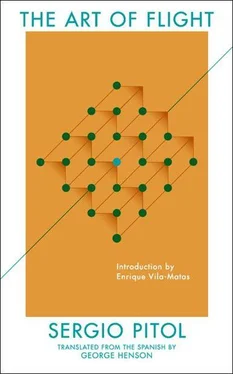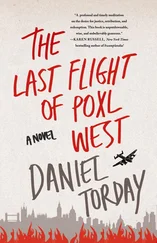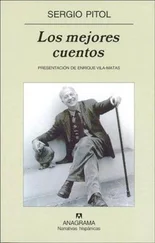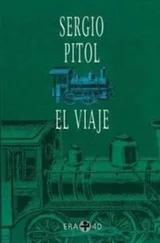Upon meeting with the young Monteiro Rossi and his girlfriend, Pereira’s via crucis and final resurrection begin. “He asked himself: Am I living in another world? And he was struck by the odd notion that perhaps he was not alive at all, it was as if he were dead.” 30The journalist, however, is predestined to remain alive, even if each of his meetings with the young couple leads him to difficult situations, to truly atrocious moments. And perhaps therein lies the most difficult challenge that Tabucchi has assumed: to not introduce a young communist in the thirties as a cruel and callous sectarian, which today is usually considered mandatory. The young Monteiro Rossi and his friends are communists, yes, and are aware of the need to strengthen the International Brigades fighting in the Spanish Civil War, among other things, because Franco’s victory would mean the continuation of the Salazar dictatorship in Portugal. He knows nothing about the purges in Moscow and, if anyone had spoken to him about them, he would think it was a lie invented by fascist propaganda, or the punishment of a group of traitors who committed crimes before being executed. The same thing Kio would have thought, the character from Malraux’s The Human Condition , one of the most beloved heroes during my youth, whose death moved me as if it he had been one of my closest friends. In this way, Tabucchi shatters a rigid form of contemporary “politically correct thought,” that of turning any communist militants living during the years of the Soviet purges into monsters of abjection, into active accomplices in the crimes of Stalin, and into builders of the extermination camps. That would be like condemning Walter Benjamin, Picasso, Tibor Déry, and hundreds of intellectuals who believed in the possibility of changing the world. The young hero of Pereira Declares could be one of them. Not long ago, Jérôme Garcin reported that during a conversation with Julien Gracq this remarkable writer above suspicion had addressed the situation in the thirties: “The Revolution was a job and an article of faith. He was a communist then and was active in the Confédération générale du travail (the CGT). He didn’t miss a single meeting […] He remembers with amusement almost being discharged in 1938 for being the only teacher at the Lycée de Quimper to participate in a banned strike. He continues to evoke that period of collection drives, of meetings and illusions during which he headed a section and delivered the Party word to the trawlers of Douarnenez, to the tuna boats of Concarneau, and to the lobster boats of Guilvinec, in cafés where the chouchen inflamed the minds of the seaman. Gracq surrendered his card in 1939, when the German-Soviet pact was announced. Did he get out in time? No, he retorts, it was already too late. From the first trials in Moscow, he says in retrospect, I should have made a clean break. But he adds he would have been deprived of the beautiful moments of fraternity in the secret and harsh Finistère, where he learned about a universe at once pure and Manichean.”
Censorship, distrust of his newspaper, and police surveillance barrel down on Pereira. It seems the meeting with the young couple who write delusional and unprintable obituaries was a curse for the old and infirm journalist, who becomes increasingly more engaged with the “pure and Manichean” world to which his protégés belong. In the end, he will become another man. His obstacles to survival will surely become greater, but he will have the certainty of having saved his soul. His victory will be immense. The only obituary he manages to write is that of the young Monteiro Rossi. It will also be the most beautiful page of the novel.
We do not know to whom Pereira is speaking, to whom he declares what happened during that terrible summer of 1938. Perhaps he shares his testimony with fellow exiles, one of them the novel’s supposed author, who glosses, details, and shades everything the journalist declares in order to transmit it later to the reader, who in fact becomes the true recipient of the testimony. The method is perfect. It allows both proximity and distance. And those two words: “Pereira Declares”—repeated throughout the novel — work as a refrain that accentuates the melody of perfect prose.
Xalapa, July 1995

29 Translated by Margaret Jull Costa
30 Translated by Patrick Creagh
I. THE BEGINNINGS
2 JANUARY 1994
Ominous headlines appear in today’s newspapers: “Revolution breaks out in Chiapas. San Cristóbal de Las Casas and three cities fall into the hands of rebels.” A friend, who as a rule is very well informed, phoned me this morning to wish me a happy New Year. She answered my questions and told me that the situation had returned to normal, but that there had been wide-scale fighting and several deaths. Yesterday I went to my cousins’ for New Year’s dinner. Some of those in attendance expressed enthusiasm for the North American Free Trade Agreement, which was coming into force. We would soon be like the United States and Canada. Well, not the country, it would still have to wait a while, they clarified; but everyone present agreed it would be a good thing for us. Someone claimed to have heard on a radio newscast something about the occupation of some cities in Chiapas. No one took it seriously. They tell him he must not have understood correctly. Some fanatical opposition groups have begun storming the city halls in some villages, only to abandon them after four or five days of anarchy…In fact, my friend in the know told me that the army had to intervene to liberate the occupied towns. She was sure that it was an act of revenge against the president. Someone had pledged to ruin the day that the Free Trade Agreement went into effect. Without a doubt we would find out who was responsible for the disturbance. Newspapers, for their part, are saying that someone incited the Chiapanec indigenous communities to revolt. But no one knows for sure who that someone is who is capable of ruining the President of the Republic’s day and making the Indians revolt. It seems to me that right now anyone who wanted to could organize uprisings in different parts of the country, because there is extreme poverty, and people in the countryside are desperate. As incredible as it may seem, the insurgents said they would advance on Mexico City and would not give up until they overthrew the government. They would not settle for being the protagonists of a regional insurrection.
4 JANUARY
What days! The rebellion in Chiapas has everyone on end. Contrary to what was said, it hasn’t been defeated. I watch television and everything seems unreal and quite terrifying…I’m exhausted, overwhelmed, in a foul mood…I’m almost certain this year will be horrible. The worst thing that could happen to Mexico would be the birth of a Shining Path. During a television newscast they said the leader of the guerrilla movement is twenty-four and speaks four languages. Surely some new information will come out soon. But how were these people militarily trained? That will also be made public soon, they say. I feel like going to live in Italy or Spain. Portugal. The Salinas era will wind down this year. But it will leave a lasting wound on the country.
5 JANUARY
Farewell dinner for John and Deborah, who will be spending a few months at Yale. The topic, like it or not, was the uprising in Chiapas. Later I went by Rodrigo’s house and the conversation was the same; then Braulio visited me at the hotel and went on about how complex the situation is. I went up to my room, turned on the television, and listened to the spokeswoman for the Secretariat of the Interior, Socorro Díaz, read a document on the insurgency’s structure: military training, weapons, recruiting, etc. It is incomprehensible that the authorities were not aware of these preparations. Either the guerrillas were protected by a powerful sector inside the government or had the full support of the indigenous communities who allowed them to create this army, or both. Everything seems to be in Chinese.
Читать дальше













